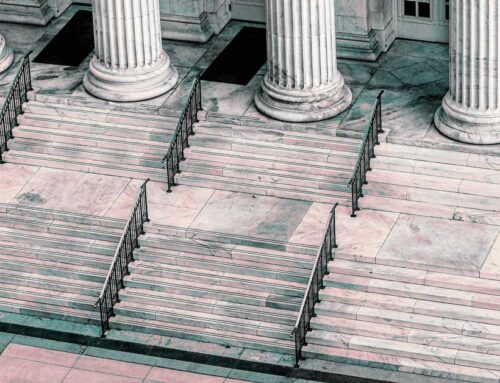Credit card debt is widespread in California, with millions of residents struggling to manage their financial obligations. In fact, a WalletHub study puts the total credit card debt owed by Californians at a whopping $162 billion.
When debts remain unpaid, credit card companies and third-party debt collectors may escalate their collection efforts. That escalation includes lawsuits that may result in court judgments, wage garnishments, and even bank account levies.
Failing to address a credit card lawsuit can have severe financial consequences. In California, creditors can seek a default judgment against you if you ignore the lawsuit, which grants them the ability to seize your wages and bank accounts or even place a lien on your property. Given these risks, individuals facing lawsuits must be aware of their rights and available defenses under both federal and state law.
Hiring an attorney can significantly impact the outcome of a credit card debt lawsuit. A lawyer can analyze the case, identify legal defenses, challenge the creditor’s claims, and negotiate a favorable settlement. In many cases, a skilled attorney can get a lawsuit dismissed entirely or significantly reduce the amount owed. Understanding your options and acting quickly can make the difference between financial stability and long-term hardship.
II. Understanding Credit Card Debt Lawsuits
How Debt Escalates to a Lawsuit
Credit card debt lawsuits typically follow a predictable pattern. Initially, when a debtor misses a payment, the credit card company may impose late fees and increase the interest rate. If you miss your payments long enough, the creditor may charge off the debt. A charge-off means the original creditor no longer considers the debt a performing asset and will either attempt to collect it internally or sell it to a third-party debt buyer.
Once a debt is sold, it becomes the responsibility of a debt collection agency or a debt buyer. These entities purchase debts for a fraction of their original value and attempt to collect the full balance from you. If their collection attempts fail, they may escalate to legal action by filing a lawsuit.
The Legal Process of a Credit Card Lawsuit
When a creditor or debt collector files a lawsuit, the defendant (debtor) is served with a summons and complaint. The complaint outlines the creditor’s claims, including the amount allegedly owed and the basis for the lawsuit. The summons provides details on how and when to respond.
Under California Code of Civil Procedure § 412.20, defendants typically have 30 days from the date of service to file a written response (Answer) with the court. Failure to respond can result in a default judgment, which allows the creditor to enforce collection through wage garnishment, bank levies, or property liens.
If the debtor responds, the case proceeds through various stages, including pre-trial motions, discovery, and possibly a trial. Many cases settle before reaching trial, but without a valid defense, the court may rule in favor of the creditor.
California-Specific Laws on Credit Card Debt
California has several laws protecting consumers from unfair debt collection practices and excessive enforcement actions:
- California Fair Debt Collection Practices Act (CFDCPA) – California Civil Code § 1788: This law prohibits debt collectors from using abusive, deceptive, or unfair practices when attempting to collect a debt. It is similar to the federal Fair Debt Collection Practices Act (FDCPA, 15 U.S.C. § 1692) but provides additional protections for California residents.
- Statute of Limitations on Debt Collection – California Code of Civil Procedure § 337: Creditors have four years to sue for unpaid credit card debt. After this period, the debt becomes time-barred, meaning the creditor can no longer file a lawsuit to collect it. However, making a payment or acknowledging the debt in writing can restart the statute of limitations.
- Wage Garnishment Limits – California Code of Civil Procedure § 706.050: In California, creditors can garnish up to 25% of a debtor’s disposable income or the amount exceeding 40 times the state minimum wage, whichever is less.
Should You Hire a Lawyer for a Credit Card Debt Lawsuit?
Though you’re not legally required to have an attorney to defend a credit card debt lawsuit, doing so can significantly increase the chances of a favorable outcome. A lawyer can navigate the legal system to effectively challenge the creditor’s evidence and negotiate a manageable settlement.
Attorneys can also identify procedural errors that may lead to case dismissal. For instance, if the creditor lacks proper documentation proving ownership of the debt, the case can be dismissed. Additionally, lawyers can leverage consumer protection laws, such as the California Rosenthal Fair Debt Collection Practices Act (Civil Code § 1788.30), which penalizes debt collectors for violating consumer rights.
When Hiring a Lawyer is Critical
There are certain situations where hiring an attorney is crucial:
- Risk of Default Judgment: If you fail to respond to the lawsuit in time, the court will likely issue a default judgment, allowing the creditor to enforce collections against you.
- Disputed Debt: If you do not recognize the debt, suspect fraud, or believe the amount is incorrect, an attorney can demand verification and challenge the creditor’s claims.
- Lack of Proper Documentation: Debt buyers often struggle to prove ownership of the debt. If they cannot provide a clear chain of ownership from the original creditor to themselves, the case may be dismissed.
Defending Against a Credit Card Debt Lawsuit
If you receive a court summons for a credit card debt lawsuit, follow these steps to protect yourself:
- Do Not Ignore the Summons: Failure to respond within 30 days results in an automatic win for the creditor.
- Assert Legal Defenses:
- Expired Statute of Limitations (CCP § 337): If the debt is more than four years old, it may be unenforceable.
- Lack of Proper Documentation: The creditor must provide original contracts, billing statements, and a chain of assignment.
- Fair Debt Collection Violations (Civil Code § 1788): If the creditor engaged in harassment or misleading practices, the case may be dismissed.
- File a Response (Answer): A written Answer prevents default judgment and allows you to contest the claims.
- Consider Settlement Options: Negotiating a lump-sum payment or structured repayment plan may be more favorable than losing in court.
The Wisdom of Settling Before Trial
Settling a debt before trial can help avoid court costs, reduce stress, and potentially lower the amount owed. However, settlement is not always the best option. If you have a strong defense, you may be able to win the case outright or have it dismissed.
Negotiating a Settlement
- Contact the creditor or collection agency to propose a lump-sum or installment payment plan.
- Use an attorney to negotiate better terms, such as reducing the total balance due.
- Ensure all settlement agreements are in writing to prevent future collection attempts.
Consequences of Losing a Credit Card Debt Lawsuit
If you lose a credit card debt lawsuit and cannot pay the judgment, the creditor can take several collection actions against you. The most common consequences include:
- Wage Garnishment (CCP § 706.050): A creditor can garnish up to 25% of your disposable earnings. However, California law protects certain income, such as Social Security, unemployment benefits, and disability payments.
- Bank Account Levy (CCP § 700.140): Creditors may freeze and seize funds from your bank account to satisfy the judgment.
- Property Liens (CCP § 697.310): If you own real estate, the creditor can place a lien on your property, preventing you from selling or refinancing until the debt is paid.
Creditors must follow legal procedures before enforcing these actions. Working with an experienced credit card defense attorney can help negotiate an installment plan or prevent aggressive collection measures.
Using Bankruptcy to Resolve Debt
For individuals overwhelmed by credit card debt and facing legal judgments, bankruptcy may provide relief.
- Chapter 7 Bankruptcy (U.S. Bankruptcy Code, 11 U.S.C. § 727): This option eliminates unsecured debts, including credit card balances. However, not all assets are protected, and you may be required to liquidate non-exempt property.
- Chapter 13 Bankruptcy (11 U.S.C. § 1322): This allows debtors to reorganize their debt into a 3-to-5-year repayment plan while protecting assets from liquidation. Creditors are prohibited from taking further legal action during the repayment period.
Filing for bankruptcy immediately halts wage garnishments, bank levies, and lawsuits under the automatic stay provision (11 U.S.C. § 362). If you are facing severe financial hardship, consulting a bankruptcy attorney may be the best course of action.
How to Find the Right Credit Card Debt Attorney
If you’re facing a credit card debt lawsuit, you owe it to yourself to find an experienced attorney to guide you. Whether you end up hiring a lawyer or tackling the case on your own, the knowledge and information you can gain from an attorney is invaluable.
I offer a free 15-minute introductory call to determine whether we’re a good fit and see if I can represent you. You can schedule your appointment here.
However, I am not the only consumer debt relief attorney representing people who are sued by debt collectors. Here are a few other resources:
- California State Bar: The State Bar of California provides a directory of attorneys representing people in consumer matters. You can access the Certified Lawyer Referral Services Directory here.
- National Association of Consumer Advocates: Look for attorneys with experience handling Fair Debt Collection Practices Act (FDCPA) violations, debt settlement, and credit card lawsuits. Click here for the member directory.
What to Ask Before Hiring an Attorney
Before hiring a lawyer, ask the following questions to ensure they are the right fit:
- How much of your practice focuses on credit card debt lawsuits?
- What legal defenses do you expect to raise in this case, and why?
- Do you charge an hourly rate or a flat fee for representation?
- Will I have to pay legal fees upfront, or do you offer payment plans?
- Can you help negotiate a settlement if I don’t want to go to trial?
Some attorneys offer free consultations, allowing you to discuss your case before committing to representation. Researching your options and understanding legal fees can help you make an informed decision.
Not a Minute to Waster
Credit card debt lawsuits can have serious financial consequences, including wage garnishments, bank levies, and property liens. Ignoring a lawsuit increases the risk of a default judgment, which grants creditors the legal right to seize assets and enforce collection.
Understanding your rights under California and federal debt collection laws is essential to protecting yourself from aggressive creditors. If sued, responding within 30 days, verifying the debt, and considering legal representation can improve your chances of a favorable outcome.
Hiring an attorney can significantly increase the likelihood of winning a case, negotiating a lower settlement, or avoiding judgment enforcement actions. Whether you choose to fight the lawsuit, settle, or explore bankruptcy, taking proactive steps can help you regain financial stability and protect your future.
ABOUT THE AUTHOR
Meet Jay
 Since I became a lawyer in 1995, I’ve represented people with problems involving student loans, consumer debts, mortgage foreclosures, collection abuse, and credit reports. Instead of gatekeeping my knowledge, I make as much of it available at no cost as possible on this site and my other social channels. I wrote every word on this site.
Since I became a lawyer in 1995, I’ve represented people with problems involving student loans, consumer debts, mortgage foreclosures, collection abuse, and credit reports. Instead of gatekeeping my knowledge, I make as much of it available at no cost as possible on this site and my other social channels. I wrote every word on this site.
I’ve helped thousands of federal and private student loan borrowers lower their payments, negotiate settlements, get out of default and qualify for loan forgiveness programs. My practice includes defending student loan lawsuits filed by companies such as Navient and National Collegiate Student Loan Trust. In addition, I’ve represented thousands of individuals and families in Chapter 7 and Chapter 13 bankruptcy cases. I currently focus my law practice solely on student loan issues.
I played a central role in developing the Student Loan Law Workshop, where I helped to train over 350 lawyers on how to help people with student loan problems. I’ve spoken at events held by the National Association of Consumer Bankruptcy Attorneys, National Association of Consumer Advocates, and bar associations around the country. National news outlets regularly look to me for my insights on student loans and consumer debt issues.
I’m licensed to practice law in New York and California and advise federal student loan borrowers nationwide.
continue reading




